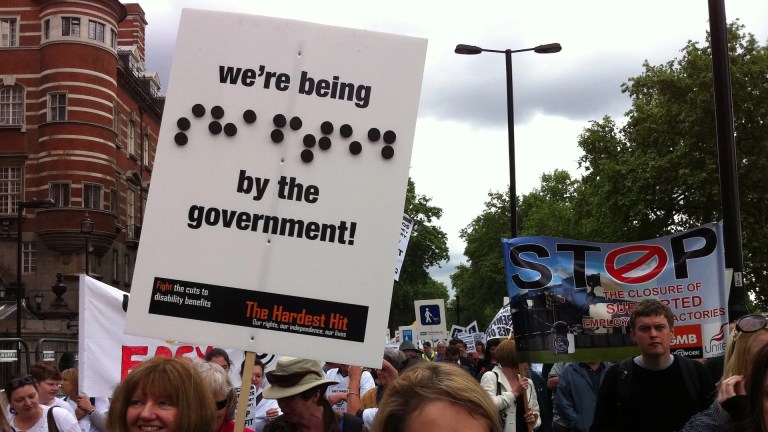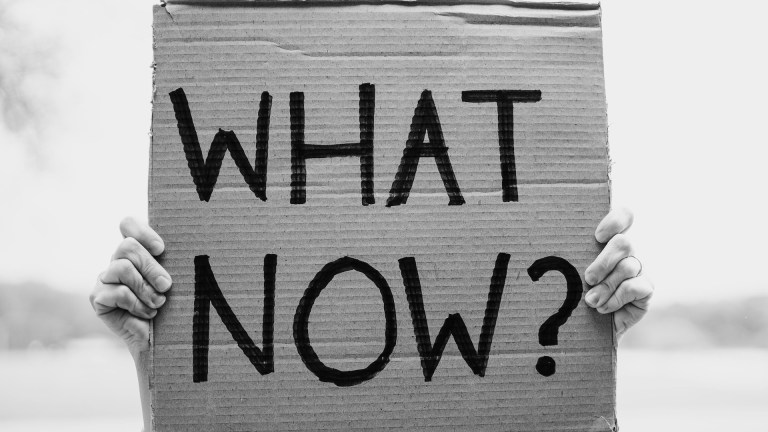Speaking to the Big Issue, 54-year-old David Davensac described how debt exacerbated his mental health struggles and pushed him further away from work.
“I had long-term mental health issues,” he says. “I was already receiving some therapy and medication. I had a lower reserve, if you like, for when trauma happened. It meant that I could get some leeway from creditors, but it also meant that on some days, I just didn’t want to open the letters or make phone calls. It was a perfect storm.”
The Big Issue previously reported on research from the Money and Mental Health Institute which found half of people behind on bills have had suicidal thoughts in the cost of living crisis.
Around 2.5 million people feel “harassed” by the calls, texts and messages they receive from creditors.
A woman from Glasgow told Debt Justice: “I am currently in crippling debt. I’ve been so overwhelmed by the onslaught of letters demanding unpayable amounts that I have felt completely paralysed with fear and shame. The current status quo is forcing people already in debt into more debt. We need to address this situation with immediate effect to allow people in debt to turn their situation around.”
Another woman, Debbie, said: “It’s horrible, frightening and demeaning to be living under debt.”
Advertising helps fund Big Issue’s mission to end poverty
The polling was commissioned by Debt Justice to coincide with the launch of its ‘Together Against Debt Manifesto’, a set of policy demands developed by people most affected.
It calls on political parties to commit to supporting people with unmanageable debt to have a fresh start, providing them with protection from debt collector harassment and guaranteeing a decent income for all.
Around 85% of people polled agreed that the government should ensure free and high-quality debt advice is available in every community. Meanwhile, 69% of people agreed that the government should ensure people are protected from creditor and bailiff harassment.
Tracey from Lancashire said: “I’ve been classed as disabled and I’ve no way of paying any debt back and the debt companies constantly hound you to the point where I’m scared to open mail or answer the door or even go out at all.”
Of the people polled, around 77% of people said the government should ensure everyone can meet essential costs such as food, energy and housing, so they don’t fall behind on bills.
That includes ensuring employers pay enough and ensuring that benefits give the most vulnerable people enough income to survive. The Joseph Rowntree Foundation has found that universal credit will fall short by £30 each week even after benefits are increased in April.
Advertising helps fund Big Issue’s mission to end poverty
It comes as organisations, led by the Joseph Rowntree Foundation and Trussell Trust and backed by The Big Issue, call for the government to increase benefits so that people can afford the essentials they need to survive.
Do you have a story to tell or opinions to share about this? We want to hear from you. Get in touch and tell us more.
Where to get help if you are struggling with debt
StepChange provides confidential and free expert advice on debt, as well as tips on budgeting, financial advice, and ways to prioritise your debts.
Citizens Advice provides help to deal with problem debt, to avoid losing your home and to get back on top of your finances.
Money Advice Trust operates a confidential national debtline which is available over the phone or via webchat.
Mental Health & Money Advice provides practical tips to lessen the strain of the financial crisis and maintain your mental wellbeing.
Advertising helps fund Big Issue’s mission to end poverty
MoneyHelper offers guidance to help you through the often-stressful situation of talking to a creditor about money you owe them, how to navigate credit and Buy Now Pay Later agreements, and other money concerns.
Find out more about getting help for debt here and for coping with mental health in the cost of living crisis here.










